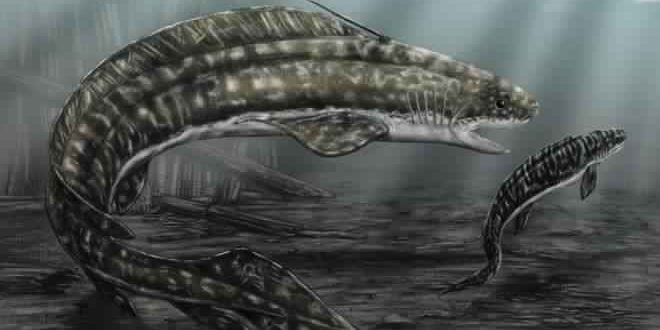An ancient group of sharks living approximately 300 million years ago were cannibalistic and would even devour their own young, according to fossil evidence collected as part of research detailed in Thursday’s edition of Palaeontology.
The discovery was made by Aodhán Ó Gogáin, a PhD candidate at Trinity College Dublin’s School of Natural Sciences, who found baby shark teeth in adult Orthacanthus coprolites, or fossilized poop.
“There is already evidence from fossilised stomach contents that ancient sharks like Orthacanthus preyed on amphibians and other fish, but this is the first evidence that these sharks also ate the young of their own species,” Gogáin said in a statement.
These ancient shark turds were unearthed in Minto Coalfield in New Brunswick, Canada, and can be easily pegged as Orthacanthus because of their recognizable spiraled shape. Adult Orthacanthus sharks could grow to as large as three meters (9.8 feet), and were apex predators in the swamps and shallow seas of the late Carboniferous and early Permian periods.
Eating the young of one’s own species is called filial cannibalism, in case you’re wondering, and it is fairly common in the natural world, especially among fish. There are any number of reasons for it, ranging from paternal competition to sheer desperation. Without any way to directly observe Orthacanthus’s baby-eating behavior, the motivations of these sharks remains hazy, but it’s possible to speculate on what might have compelled them to dine on their children.
“We don’t know why Orthacanthus resorted to eating its own young,” said study co-author Howard Falcon-Lang, a paleontologist based at Royal Holloway, University of London. “However, the Carboniferous period was a time when marine fishes were starting to colonize freshwater swamps in large numbers. It’s possible that Orthacanthus used inland waterways as protected nurseries to rear its babies, but then consumed them as food when other resources became scarce.”
Or maybe, Orthacanthus pups were just unaccountably delicious, and even Carboniferous sharks need a cheat day now and then. Hopefully, future studies into these animals and their rotini-like poops will yield more insights into why they occasionally binged on baby-back ribs.
Agencies/Canadajournal
 Canada Journal – News of the World Articles and videos to bring you the biggest Canadian news stories from across the country every day
Canada Journal – News of the World Articles and videos to bring you the biggest Canadian news stories from across the country every day



